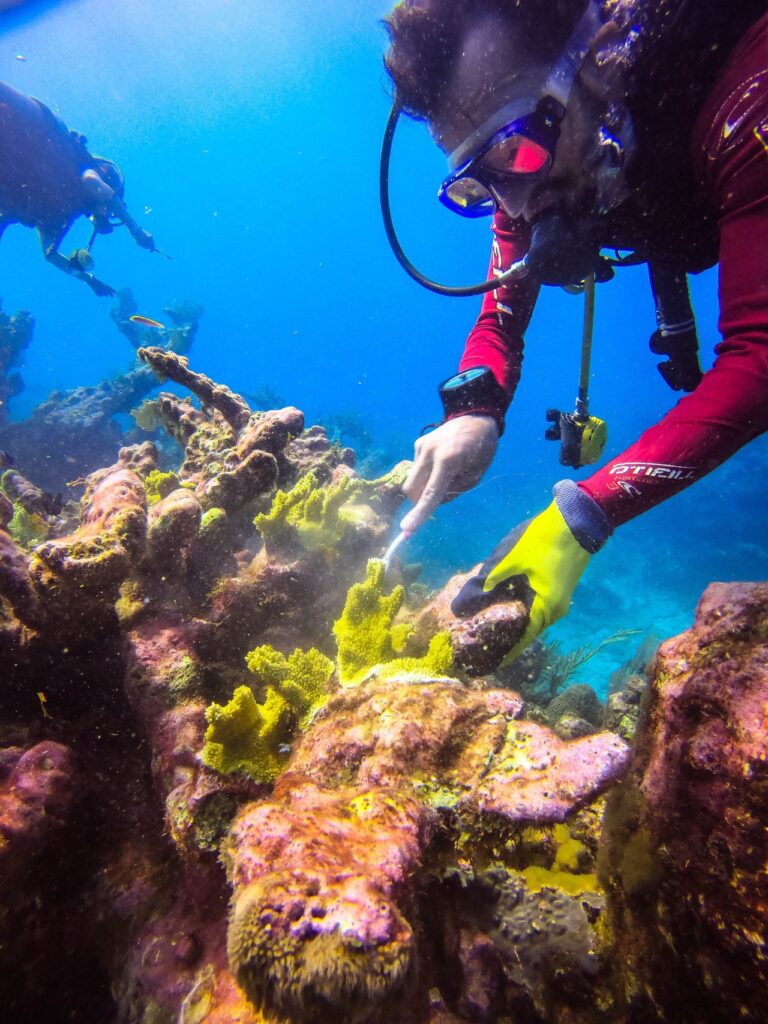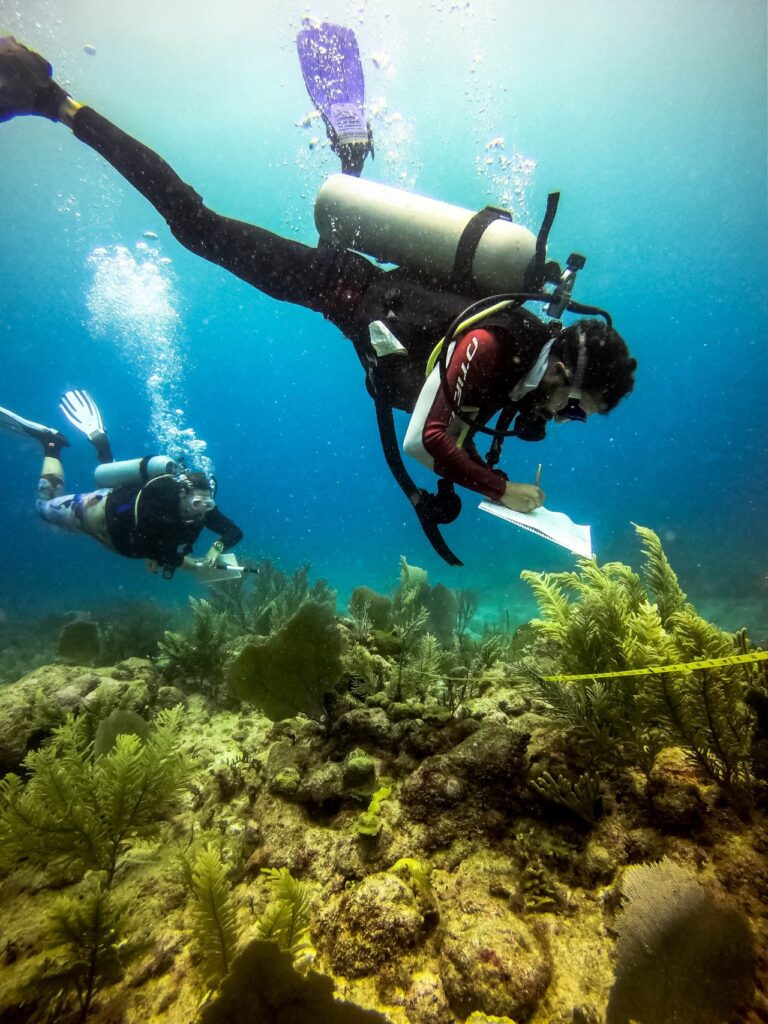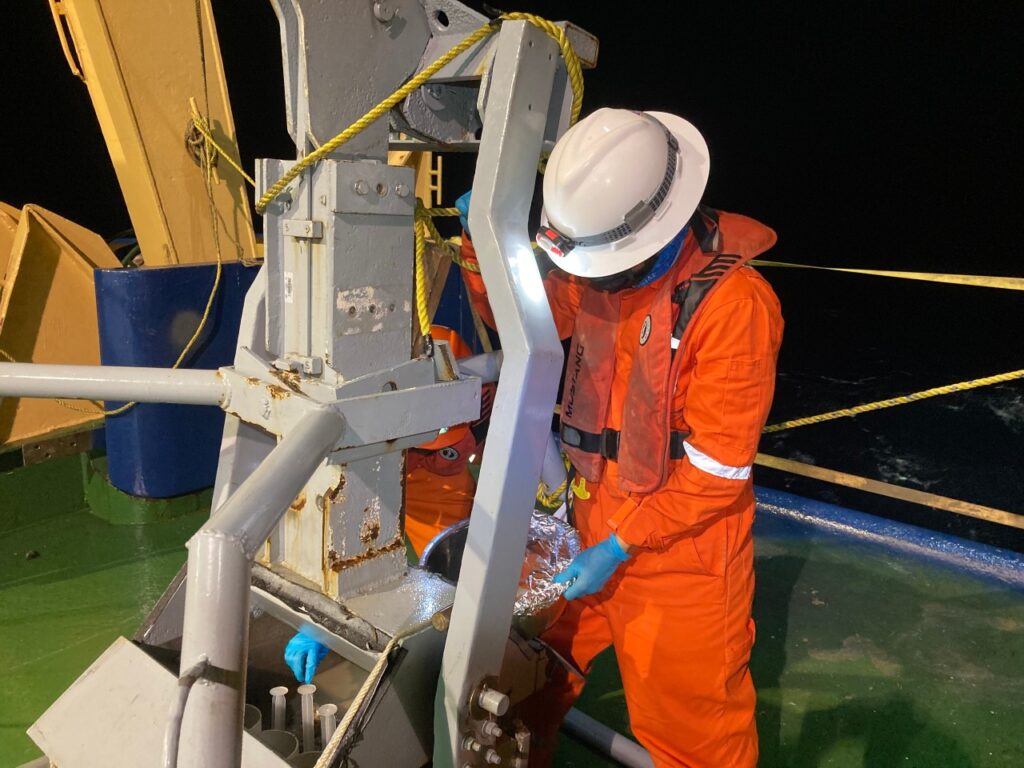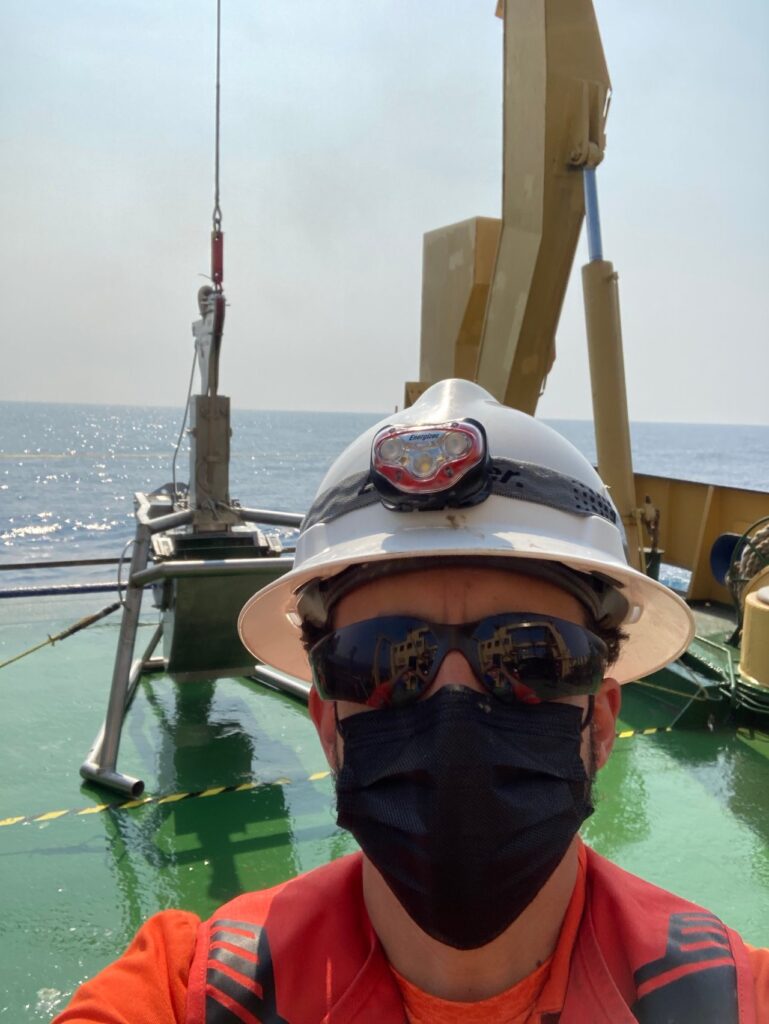People Spotlight: Meet Santiago Gaja
Our People Spotlight series gives you an inside look at our technical experts around the world. This week, we are highlighting a marine scientist from our Environmental business line in the Latin America region and providing an insight into their inspiration and work.
Santiago Gaja has experience in offshore environmental assessment projects and numerical modeling of the ocean in the Gulf of Mexico. He leads AECOM’s Offshore Environmental Risk Assessment Team in Mexico and coordinates deep water oceanographic surveys for environmental assessments. He has worked on coral reef restoration and monitoring and is focused on developing long-term coastal restoration projects.
Tell us about what inspired you to join the industry
Born in landlocked Mexico City, the first time I stepped on the beach as a child, I was mesmerized by the ocean and the relaxation it brings. Since then, I always wanted to replicate the feeling of joy that came from playing in the waves and relaxing on the beach. During my 20s, I was surfing and diving regularly and became more curious about what’s beneath the waves.
That mystery under the sea led to a Bachelor of Science in Oceanography and a Master of Science in Physical Oceanography, where I worked with an Acoustic Doppler Current Profiler (ADCP) to measure ocean waves and how fast water is moving across an entire water column. I started my career in the Gulf of Mexico doing numerical modeling of ocean waves and spent two years working at the Mexican Petroleum Institute, which conducts research for Pemex, the Mexican state-owned petroleum company, primarily doing ocean waves forecasting.
I then returned to the academic and research environment to pursue a doctorate in Coastal Engineering, with a focus on ports design, coastal morphodynamics and ocean renewable energy. Through LinkedIn, I received an invitation to participate in one of AECOM’s environmental projects, and this opened the door to a career working on diverse proposals and projects with people from around the world, from a hydrodynamic ADCP survey in Colombia, to artificial reef development with my colleagues in the U.S., to a wind offshore feasibility study with our UK team, to process hazard analysis software tool (PHAST) modeling with my colleagues in France. Alongside my project work, I’m able to focus on science and continue my research as part of professional development. I have the best of both worlds!
What is your favorite AECOM project that you’ve worked on and why?
In 2021, I co-led a Marine Sediment Quality Assessment around two exploratory drilled wells to assess the impact of exploratory drilling in marine deep water benthic ecosystems. This was my first project as a survey lead in the Gulf of Mexico. I handled coordinating the sampling plan and field operations. We completed the survey on schedule with zero incidents (during the coronavirus pandemic), and with excellent sampling results.
Previously, on a project like this, the private company would contract a vessel and put all the instruments into the vessel, which took a lot of time and money and added substantial risk, but on this project, our client used a Mexican vessel owned by the Universidad Nacional Autónoma de México (UNAM). This project has laid the foundation for future joint exploratory projects between the academic community and private companies in Mexico. The university’s vessels facilitate the research needed by the private companies and the university now has the means to maintain its vessels and boats.
Tell us a story of how your work positively impacted the community.
While working on my master’s thesis, I was involved with a non-government organization (NGO) in Akumal, which is in the Mexican Caribbean in the Yucatán Peninsula — very close to Cancún. When I started with AECOM, I reconnected with the NGO to propose working together on ecosystem conservation and restoration. This led to volunteer work for coral reef restoration in Akumal, restoring two coral species, cleaning out-planted coral fragments and monitoring the reef to better understand reef health indicators, such as diseases and invasive species.
We’re also working with the NGO to establish long-term practices for reef conservation. This includes encouraging the hotels and tourist consortium to invest more in coral conservation and helping them to understand why this is mutually beneficial. The coral protects them from hurricanes, flooding and storm surge. If they don’t have the coral, then they won’t have the beach they use for tourism.

Photo credit: Baruch Figueroa 
Photo credit: Baruch Figueroa
Share a piece of career advice
Don’t let the fear of what other people may think stand between your ideas and your professional development. Don’t be afraid to speak up! If you have ideas that will help your project, share them with your team and clients. This is something that will get easier with practice. And if you’re a manager, make sure that you’re encouraging your people to speak. Find creative ways to help your staff gain comfort in speaking.








